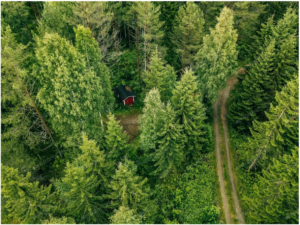Empowering Agriculture: Regenerative Experiment in Bungoma, Kenya with SenseCAP LoRaWAN Solutions
By Kezang Loday 7 months agoThis initiative in Bungoma, Kenya, led by One Planet Education Network (OPEN) and Mabanga Agriculture Training Center, employs a LoRaWAN-based sensing network to implement sustainable regenerative agriculture practices. Overcoming challenges of limited internet access and high data costs, the project utilizes SenseCAP sensors to collect real-time data on air and soil conditions, transmitted via the Helium LoRaWAN Network. The results, demonstrated over four growing seasons, reveal exceptional improvements in soil health and erosion prevention. Local farmers, guided by data-driven practices, adopt strategic crop rotation and no-till methods to enhance crop yields.
- Solution: LoRaWAN Sensing Network to Monitor Farming Practices for Regenerative Agriculture
- Participating Partners: One Planet Education Network (OPEN), Mabanga Agriculture Training Center (ATC)
- Seeed Products used: SenseCAP S2105 – LoRaWAN® Soil Moisture, Temperature and EC Sensor, SenseCAP S2103 LoRaWAN® CO2, Temperature, and Humidity Sensor for Outdoor&Indoor Air Quality, CO2 Meter, Carbon Emission, SenseCAP S2102 – LoRaWAN Wireless Light Intensity Sensor, SenseCAP M1 LoRaWAN Indoor Gateway – EU868
- Industry: Agriculture
- Solution Deployed in: Bungoma, Kenya
Agriculture is undergoing a transformative era. While the green revolution has successfully addressed the challenge of feeding a rapidly growing human population, it has also led to the depletion of Earth’s soil, water, and biodiversity, and contributed to climate change. According to the Food and Agriculture Organization (FAO) of the United Nations, agriculture accounts for approximately 70% of global freshwater withdrawal, exerting significant pressure on water resources due to excessive irrigation and inefficient practices, resulting in water waste and aquifer depletion. Additionally, the Intergovernmental Panel on Climate Change (IPCC) reports that agriculture, forestry, and other land uses contribute approximately 22% of anthropogenic greenhouse gasses.
In the heart of Bungoma, Kenya, one of the nation’s farming regions thanks to one of the country’s highest average rainfall, a transformative experiment of regenerative agriculture is unfolding. One Planet Education Network (OPEN) and Mabanga Agriculture Training Center (ATC), with unwavering support from Bungoma County’s Ministry of Agriculture, Fisheries, and Livestock, are pioneering a new journey to roll out regenerative agriculture across the region with data-driven farming practices using IoT devices.
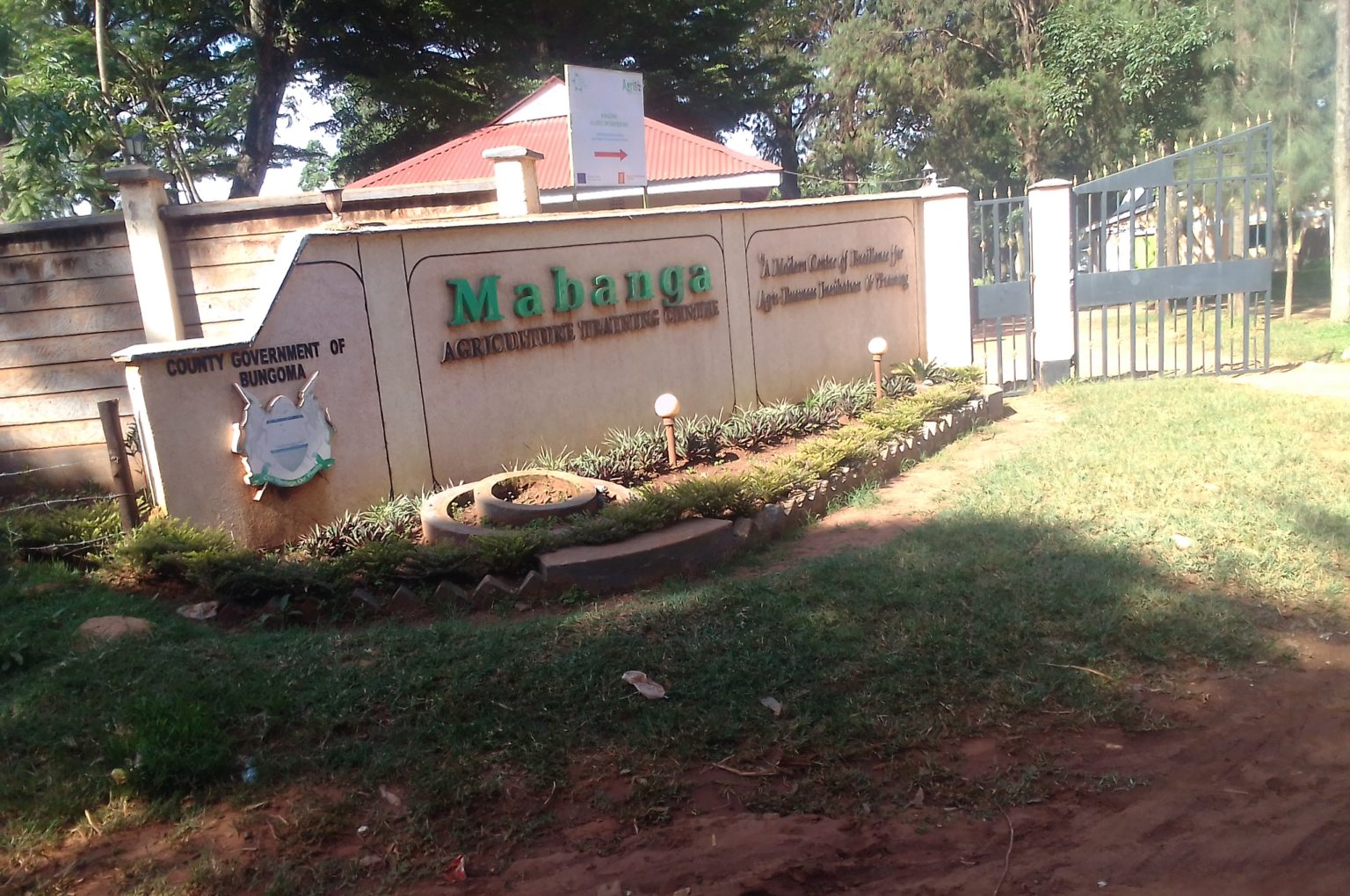
Challenges
Data-driven precision farming plays a crucial role in regenerative agriculture. By leveraging digital tools such as sensors, farmers can generate comprehensive field maps and customize the application of fertilizers and crop protection products. This approach ensures the precise utilization of the ideal amount and appropriate type of products essential for cultivating high-yielding crops.
In Bungoma, the ambitious adoption of technology-based regenerative agriculture practices faces a significant barrier due to the limited access to the Internet and the high cost of data. Unfortunately, in many African countries, including Kenya, less than 40% of farming households have Internet connectivity (Mehrabi et al., 2020).
This digital divide poses a major obstacle to implementing data-driven precision farming techniques, which heavily rely on digital tools and online resources. The prohibitive cost of data further exacerbates the challenge, hindering farmers from leveraging the full potential of technological advancements in regenerative agriculture practices.
Solution
OPEN has embarked on an initiative to enhance the conditions for farmers in Bungoma and Africa by applying a scalable LoRaWAN-based solution specifically designed for instituting sustainable regenerative agriculture practices in the region.
LoRaWAN, a low-power, wide-area networking protocol, enables wireless connectivity between battery-operated devices and the Internet, making it an ideal choice for agricultural applications, especially for rural African farming regions. One of the key advantages of LoRaWAN is its cost-effectiveness, as it operates on minimal infrastructure and facilitates low-cost data transmission.
To implement this solution, OPEN deployed one SenseCAP M1 LoRaWAN Indoor Gateway – EU868, which serves as the foundation for the Helium LoRaWAN Network infrastructure. This regenerative agriculture research covered three test bed sites: Mabanga ATC, Machwele Vocational Agriculture Training Centre, and Kitinda Secondary School. Additionally, OPEN installed four SenseCAP LoRaWAN Sensors first at Mabanga ATC to collect essential data on air temperature, air humidity, soil temperature, moisture, electrical conductivity (EC), light intensity, and CO2 levels.
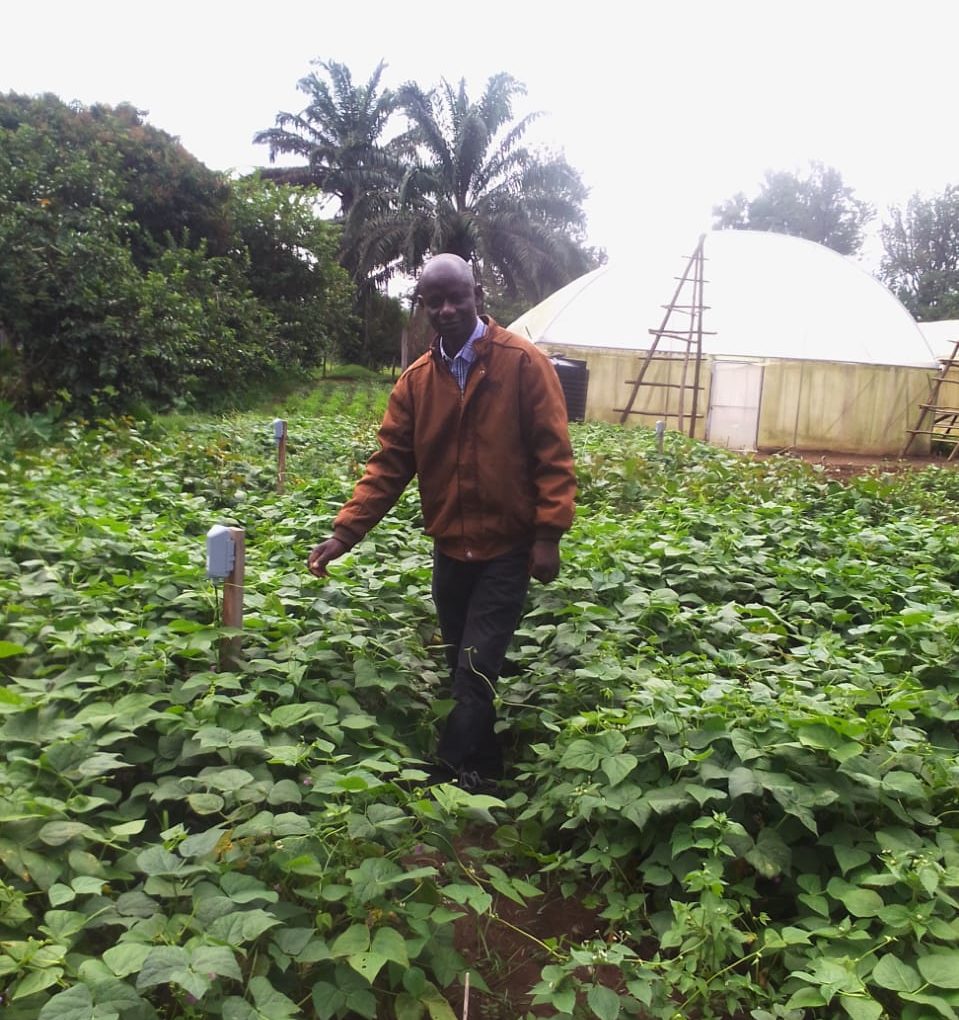
These sensors transmit the collected data to the cloud via the secure Helium LoRaWAN Network. The data is then visualized on a customized Ubidots dashboard, developed by OPEN’s partner Hitechdb, ensuring accessibility for all participating organizations, including the Bungoma County Ministry of Agriculture teams.
To enable farmers and local institutions to better adapt to climate change impacts, OPEN also incorporated SenseCAP LoRaWAN CO2 Sensors to measure and compare the carbon sequestration capabilities of soils and surrounding ecosystems.
The ultimate goal is to enhance crop yields, improve soil fertility, and combat drought using sustainable regenerative agriculture practices. Avoiding synthetic chemicals, the initiative pioneers eco-friendly farming methods. A pivotal focus is researching the efficacy of regenerative practices in retaining CO2 in the soil, employing no-till farming and cover crops.
In the next phase, the goal is to leverage the collected data from each sensor type and work with agriculture experts and AI/ML systems to analyze and interpret it. This analysis will enable farmers to make informed decisions and timely interventions, leading to improved soil quality, water conservation, and increased crop yields.
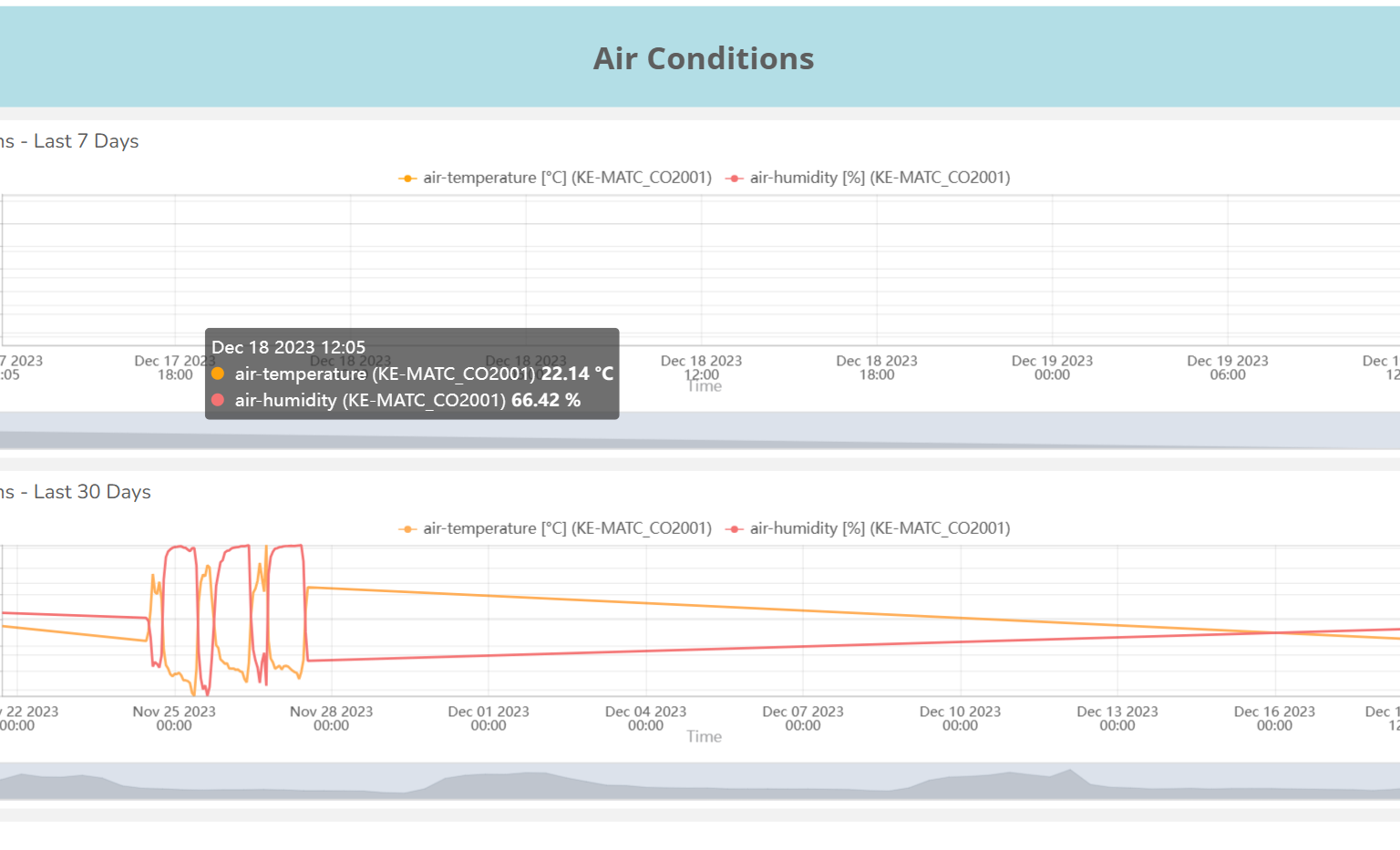
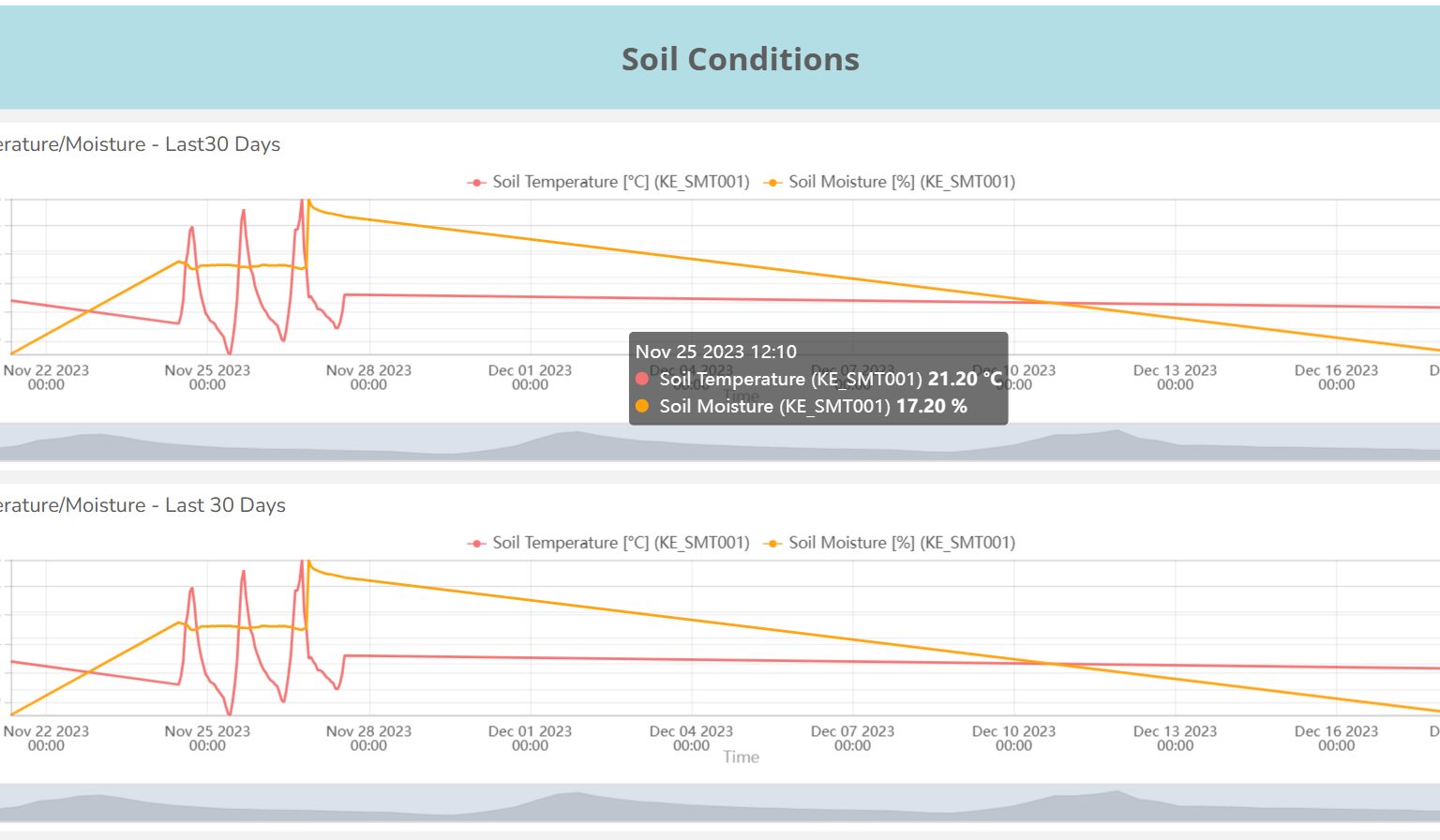
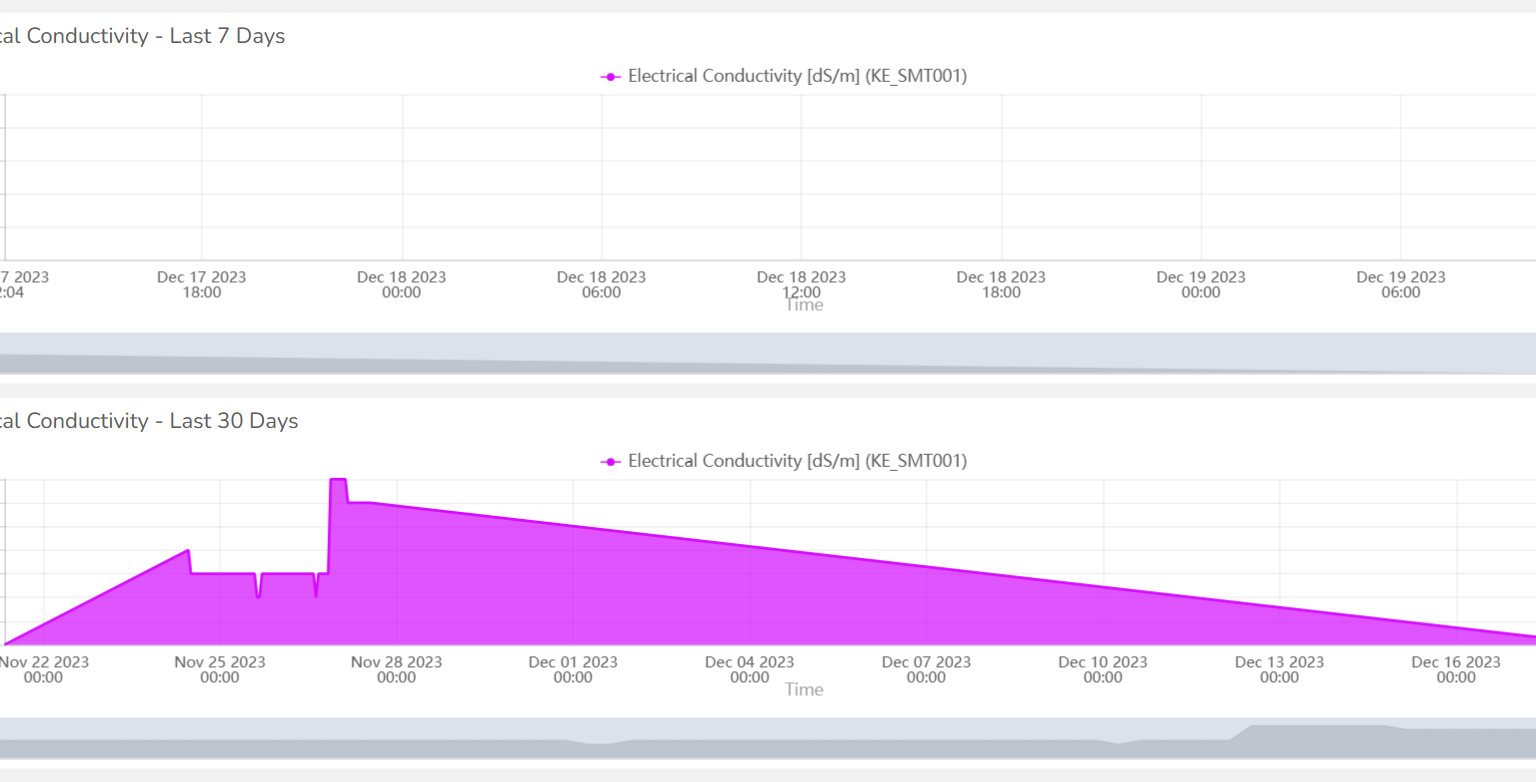
Why SenseCAP
SenseCAP sensors were chosen for reliability, accuracy, and real-time data capabilities. These sensors provided agriculture experts, farmers, and students with valuable data to enhance their understanding of soil health, crop conditions, and environmental factors.
“Kenya like other countries of the world, is experiencing climate change popups and through international donor and development partners support, have initiated different projects to address it. The technologies promoted target farm activities that take advantage of changes and experiences that increase and sustain productivity by more effectively utilizing environmental and soil resources, which regenerative agriculture facilitates. With OPEN employing its partners’ software and Seeed Studio sensors at test sites in Bungoma, additional precision measurements of different interacting environmental and soil factors will provide evidence on what needs to be done and when it needs to be done – near real time data driven agricultural management. We intend to continue to work together with OPEN and their partners, to gather supportive data while refining our regenerative solutions to further increase yields and improve our soils.
Our target is to join stakeholders and extend our unique technologies across Bungoma that can map the related surface and under surface interactions that affect food crop performance. In summary, obtaining better results in productivity and greater resiliency against damaging climate change impacts utilizing sustainable regenerative practices with more informed and timely farm management interventions thanks to sensor data will result in greater adoption across our farming region of OPEN and its partners’ smart farm solutions. Thus adoption of these initiatives and tech solutions will be a win for both youths and women since they will be assured of their efforts’ return.” comments Mr. Chrisantus Mangoli, Ministry of Agriculture, Bungoma County, Kenya.
Results
Thanks to the unwavering support of OPEN’s County Manager, Mr. Bonventure Masika, Mr. Chrisantus Mangoli, and Mr. Maurice Emuria of the Bungoma Ministry of Agriculture, OPEN’s school ecosystem, farm, and professional test bed sites have demonstrated exceptional results over four growing seasons in rapidly restoring soil health and protecting against erosion. These impressive outcomes have been achieved through the implementation of cost-effective regenerative farming practices.
By adopting a data-driven mindset, local farmers have started diversifying their crops through strategic crop rotation alternating cover crops and food crop mixtures on adjacent plots, and using no-till methods to better retain CO2 in the soil, sequestering not releasing carbon to the atmosphere in such high volumes as present practices do.
One of OPEN’s NGO Partners in Bungoma, Kenya, Small Solutions Big Ideas’ founder, Sandra Thaxter remarks that the solution is bringing positive impact to local farming industry. “Kenya is a country with an outsized youth population and pressing climate stresses. These conditions coincide to position the OPEN technology and skills to fire up the start of a possible county wide transformation of agricultural practices. These OPEN model sites, along with the distribution of training to implement these practices are the fuel. The needs, timing and opportunity are in place. With the tools, government engagement, the participation of local leaders and funding, this engine will start moving. ”
Bungoma researchers are also now introducing intercropping, mixing different complementary seasonal food crops to more effectively cycle plant root and microbial nutrients, while also alternating between nitrogen-fixing crops such as bush beans and nitrogen-hungry crops like corn. These practices effectively reduce and hopefully eliminate the reliance on synthetic fertilizers, resulting in a more sustainable and environmentally friendly approach to farming.
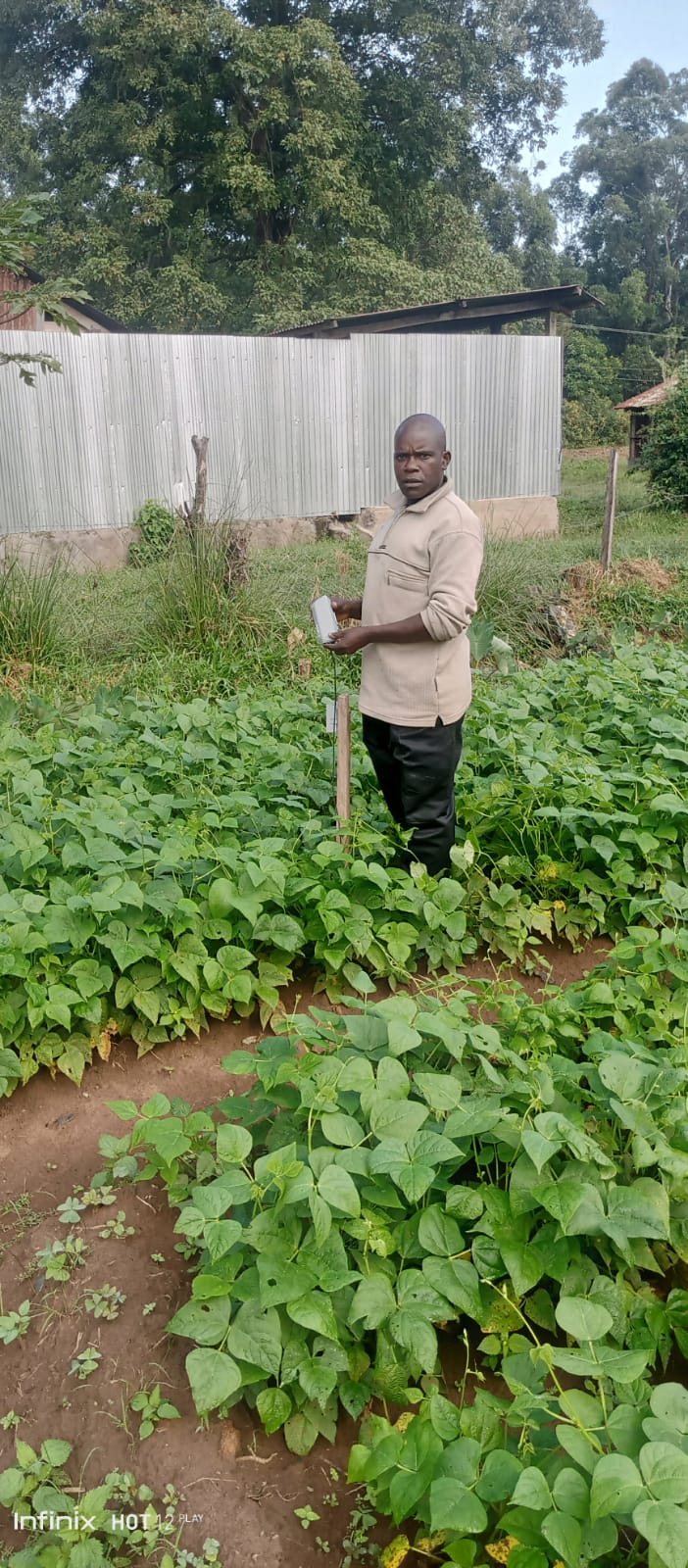
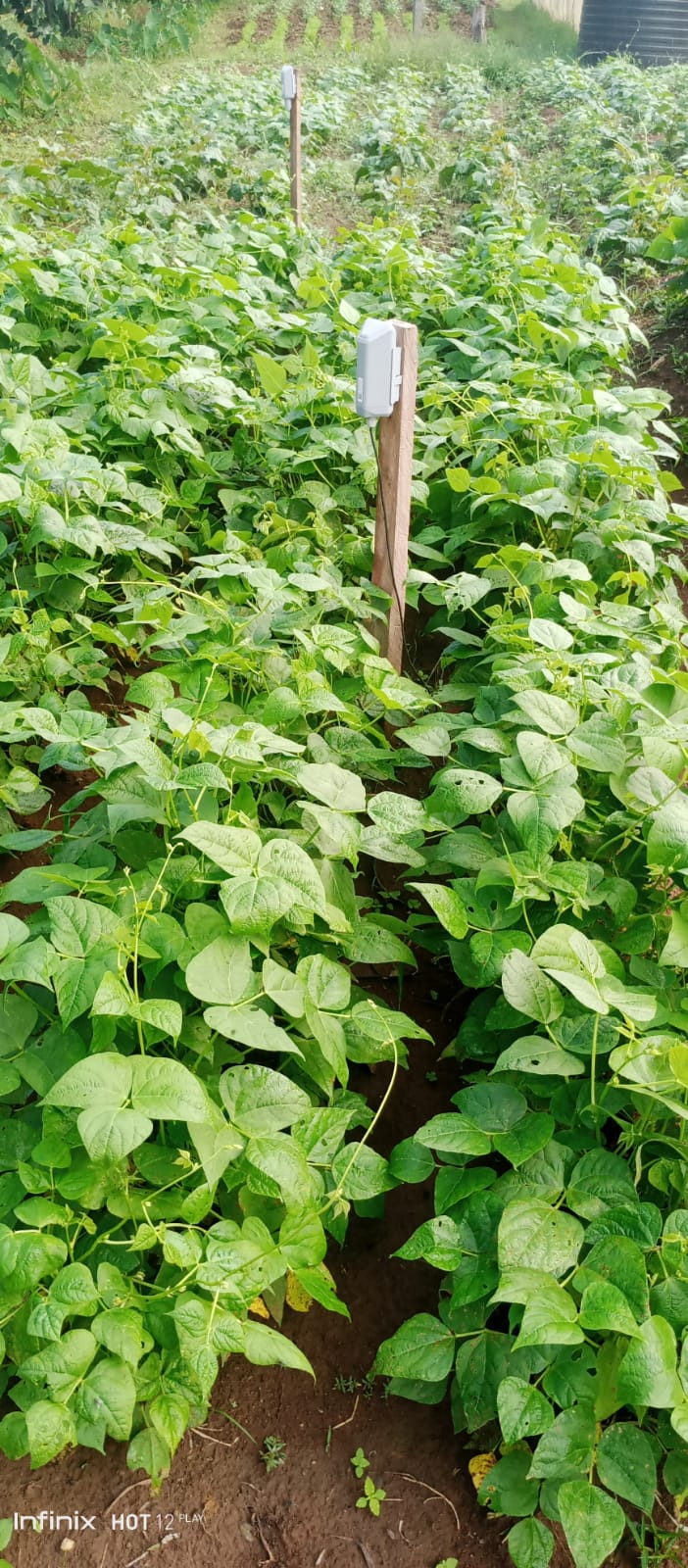
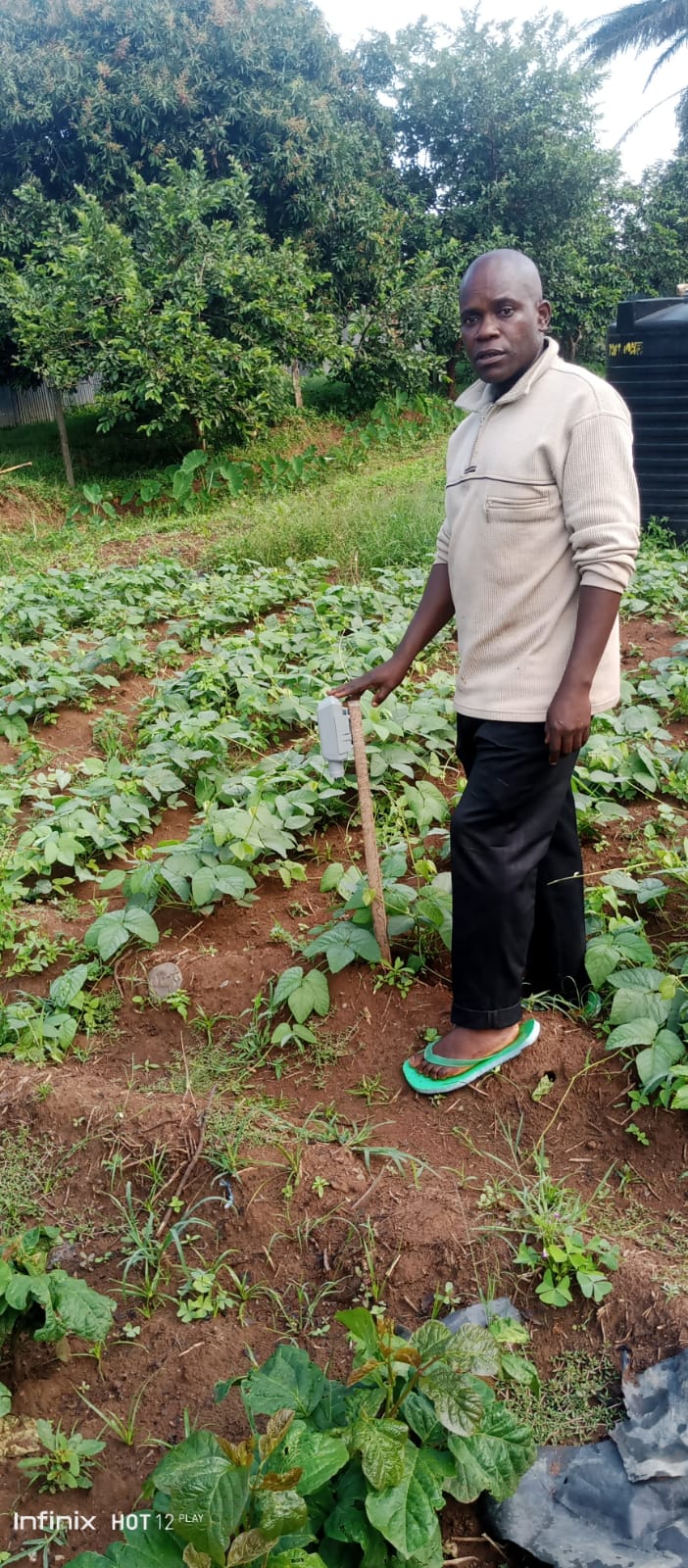
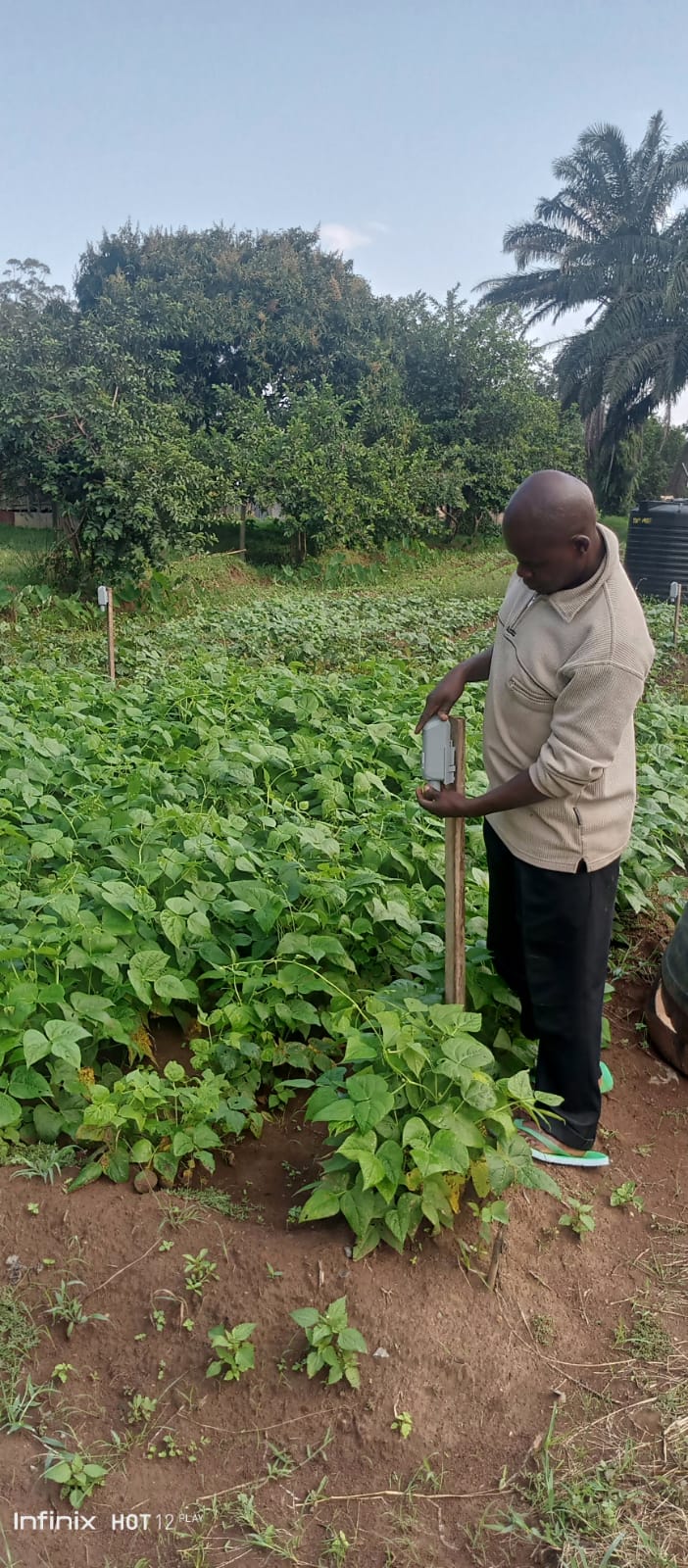
Reference
Mehrabi, Z., McDowell, M. J., Ricciardi, V., Levers, C., Martinez, J. D., Mehrabi, N., Wittman, H., Ramankutty, N., & Jarvis, A. (2020). The global divide in data-driven farming. Nature Sustainability, 4(2), 154–160. https://doi.org/10.1038/s41893-020-00631-0
Partners
One Planet Education Network (OPEN) is an organization with the goal to make students worldwide enthusiastic about science and understanding different cultures. They want to ensure students are ready to work in a modern, technology-focused world and solve big problems that affect us all. OPEN gives students the chance to use new technologies, to communicate with each other and experts globally, and to share their cultures and histories. They value respect, equality, and listening to everyone, including traditional cultures.
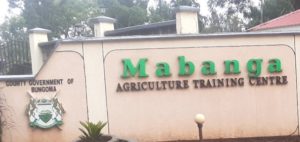
Mabanga Agriculture Training Center is under the Bungoma, Ministry of Agriculture Office. ATC’s mission is to research, test and if successful institute new farming practices, and to educate local farmers on the latest developments and new technologies impacting this sector.
More Case Study
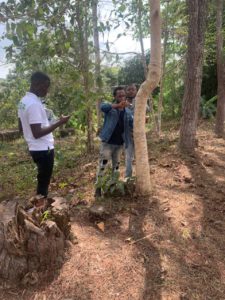
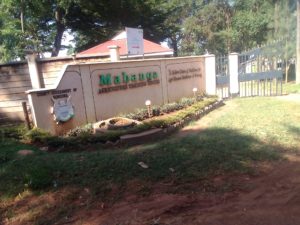
Empowering Agriculture: Regenerative Experiment in Bungoma, Kenya with SenseCAP LoRaWAN Solutions
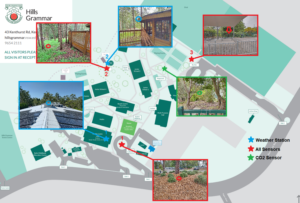
Smart Campus: Enhancing Geography Education at Hills Grammar School with SenseCAP Sensors in Australia
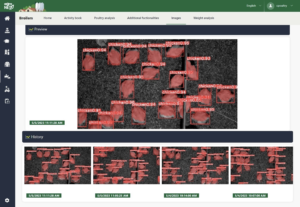
Smart Poultry Farm in Canada: Enhancing Production Efficiency and Animal Welfare with AIoT Technologies
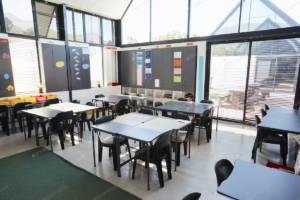
Revolutionizing Classroom Management with IoT and Raspberry Pi
